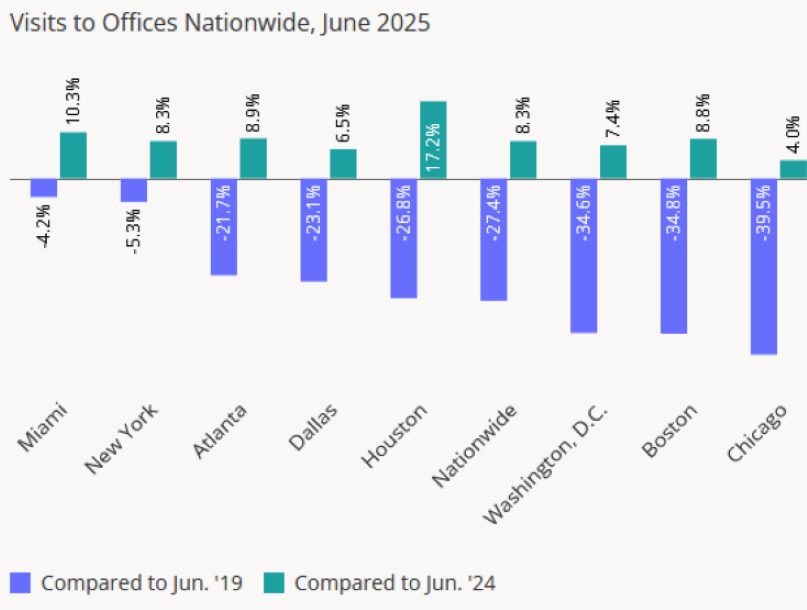1031 Exchanges: To Be or Not to Be Eliminated?
The pressure to reduce rates and find revenue offsets has put 1031 exchanges on the chopping block as part of the Trump administration's potential tax reform. But some experts believe that the likelihood of a repeal is low.
By Alexandra Pacurar
There are several reasons why 1031 exchanges are making headlines these days. The first is the possibility that this section of the Internal Revenue Code would be eliminated through President Trump’s tax reform. The second is that this investment strategy has become fairly attractive now that property prices have climbed considerably in some U.S. markets. In this context, what would be the impact of its repeal and what are the chances of this happening? Abe Leitner, director in the tax group of international law firm Goulston & Storrs’ New York office, discussed the possible scenarios in an interview with Commercial Property Executive.
CPE: Many industry experts are skeptical about the elimination of the 1031 exchange making the agenda. Why do you think there is more chance of this happening now?
Abe Leitner: There is a lot of pressure now to reduce rates and find revenue offsets to support the rate reductions. Section 1031 is a big, tempting target for those looking to find more revenue, and Section 1031’s repeal was identified as a possible revenue offset in the House Ways and Means Chairman Dave Camp’s 2014 tax reform proposal, which people are looking at pretty carefully now as tax reform discussions unfold. Also, I think if the tax reform legislation included full expensing of capital investment in buildings, it could replace Section 1031 since the gain from a sale could then be reinvested in a new building and fully expensed to offset the gain from the sale.
This would not be a perfect replacement to Section 1031, as full expensing would not apply to non-depreciable property (i.e. land), but in other respects fully expensing would be more generous than Section 1031, which has significant timing and other restrictions. There is still going to be resistance from the real estate industry to repealing Section 1031, in part because of skepticism that full expensing will become a permanent part of the Code, but that could blunt some of the resistance and make it politically less difficult to push through a repeal.
CPE: How likely do you think it is for the 1031 exchange to be eliminated?
Leitner: I think the likelihood of repeal is quite low, in part because I’m skeptical that full expensing of capital investment will pass. The ramifications of such a radical change in the structure of the tax system are not well understood so it would be risky to enact full expensing and the revenue loss would be enormous. There will be a lot of political resistance to repealing Section 1031, and not just from the real estate industry, but also from other industries that benefit from the provision.
CPE: How much would the elimination impact the real estate investment market?
Leitner: Unless full expensing were available, the elimination of Section 1031 would have a very significant impact on the volume of transactions in the market. First, it would depress sales activity by investors with significant unrealized gains. Secondly, it would result in less capital available for new investment, as capital remains trapped in old investments that owners don’t want to liquidate and pay tax on.
CPE: Which types of investors would be most impacted?
Leitner: The impact would be most felt by individual high-net-worth investors who can afford to be patient and hold assets indefinitely or until death, assuming the basis step-up at death remains a feature of the tax system (which is not certain). Publicly traded REITs also use 1031 exchanges, but tend to be less sensitive to recognizing capital gains than individual investors.
CPE: Would any types of investors be unaffected?
Leitner: There will be less of an impact on the private equity/real estate fund investors who generally invest for a limited time horizon of 10 years or less and are not big users of 1031 exchanges. Exempt institutional investors, such as foreign and domestic pension funds and sovereign wealth funds, should not be affected much, if at all, by a repeal of Section 1031.
CPE: What kind of alternative actions would you anticipate investors pursuing if the 1031 exchange was no longer available to them?
Leitner: If full expensing were available, they would continue to be planning around reinvestment of sale proceeds, albeit with much more flexibility in the timing and amount of reinvestment. For example, you wouldn’t need to reinvest the full amount of proceeds from a sale to generate enough deductions to shelter the sale, as it would be sufficient to just reinvest the amount of gain recognized from the sale.
Assuming full expensing were not available, you might see more transactions involving the use of debt, master leases and options to monetize and shift control of assets without triggering taxable sales. You would also see more UPREIT (Umbrella Partnership Real Estate Investment Trust) and similar partnership contributions structured to diversify portfolios without taxable sales.
CPE: What other changes are you anticipating as part of tax reform that are likely to impact commercial real estate and in what way?
Leitner: As mentioned, full expensing of investment seems unlikely, but would have a big impact if it were enacted. More likely is a more generous depreciation of allowances, which could benefit real estate investors a great deal.
Another idea being discussed that would have a very big impact on real estate is the disallowance of all interest expense. That seems unlikely to happen, though. Carried interest reform seems to have more legs and if that were enacted in a form that extends to real estate, it would subject real estate sponsors to ordinary income treatment. Some of the impact from such a change might be mitigated, however, if individual rates were significantly reduced.
Image courtesy of Goulston & Storrs








You must be logged in to post a comment.